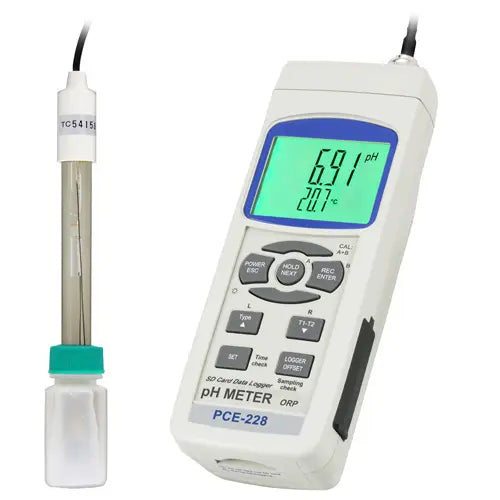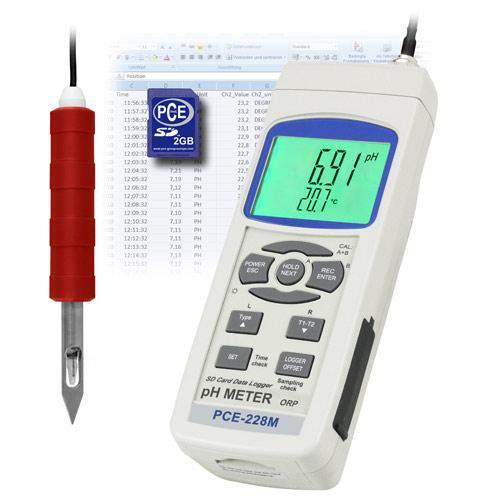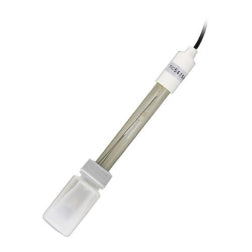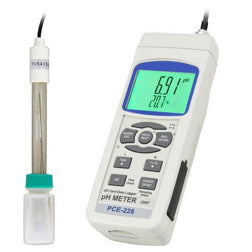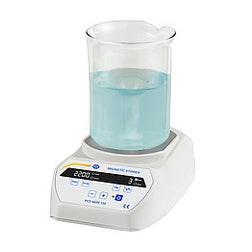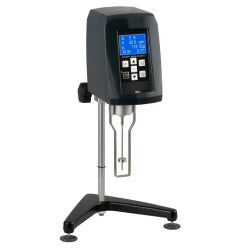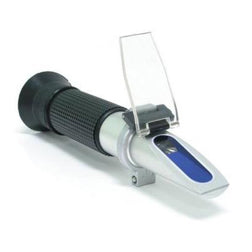210 2231624
pH meters
-
 PCE-228
PCE-228PCE-228 - pH meter with SD Card - RS-232 connectivity
Original price €366,00 - Original price €366,00Original price€366,00€366,00 - €366,00Current price €366,00| /pH measurement range 0.00 ... 14.00 pH Reading 0.01 pH Accuracy ±(0.02 pH + 2 digits) Redox measurement range -1999 ... 0 ... 19...
View full detailsΜε παραγγελία -
 PCE-228M
PCE-228MPCE-228M - Food pH Meter with SD Card - RS-232 Connectivity
Original price €618,00 - Original price €618,00Original price€618,00€618,00 - €618,00Current price €618,00| /Measurement range 0.00 ... 14.00 pH 0.0...65.0 °C or 32 ... 149 °F (temperature sensor only) Reading 0.01 pH 0.1 °C ...
View full detailsΜε παραγγελία
A pH meter is a scientific instrument that measures the acidity or basicity (alkalinity) of a solution by determining its hydrogen ion concentration (pH). The pH scale ranges from 0 to 14, with 7 being neutral, values less than 7 being acidic, and values greater than 7 being basic (alkaline).
The pH meter works by measuring the voltage difference between a reference electrode and a measuring electrode, which are both immersed in the solution being tested. The reference electrode provides a stable and constant voltage, while the measuring electrode senses the hydrogen ion concentration in the solution and generates a voltage proportional to the pH. The pH meter then calculates the pH based on the voltage difference between the two electrodes.
pH meters are widely used in a variety of fields and applications, including scientific research, environmental monitoring, quality control in industry, and agriculture. For example, in environmental monitoring, pH meters are used to measure the acidity of lakes, rivers, and other bodies of water to assess the impact of pollution and other environmental factors. In agriculture, pH meters are used to monitor the pH of soil to ensure optimal plant growth and health. In industry, pH meters are used in food and beverage production to measure the pH of liquids and adjust them to the proper level for processing and preservation.
There are different types of pH meters available, ranging from simple, handheld devices to more sophisticated, benchtop models. The choice of pH meter will depend on the specific needs and requirements of the user, including the type of solution being tested, the level of accuracy required, and the size and complexity of the samples being analyzed.
In conclusion, the pH meter is a critical tool in many fields, providing accurate and reliable measurements of the acidity or basicity of a solution. It is essential for a wide range of applications, from environmental monitoring and agriculture to scientific research and quality control in industry.


